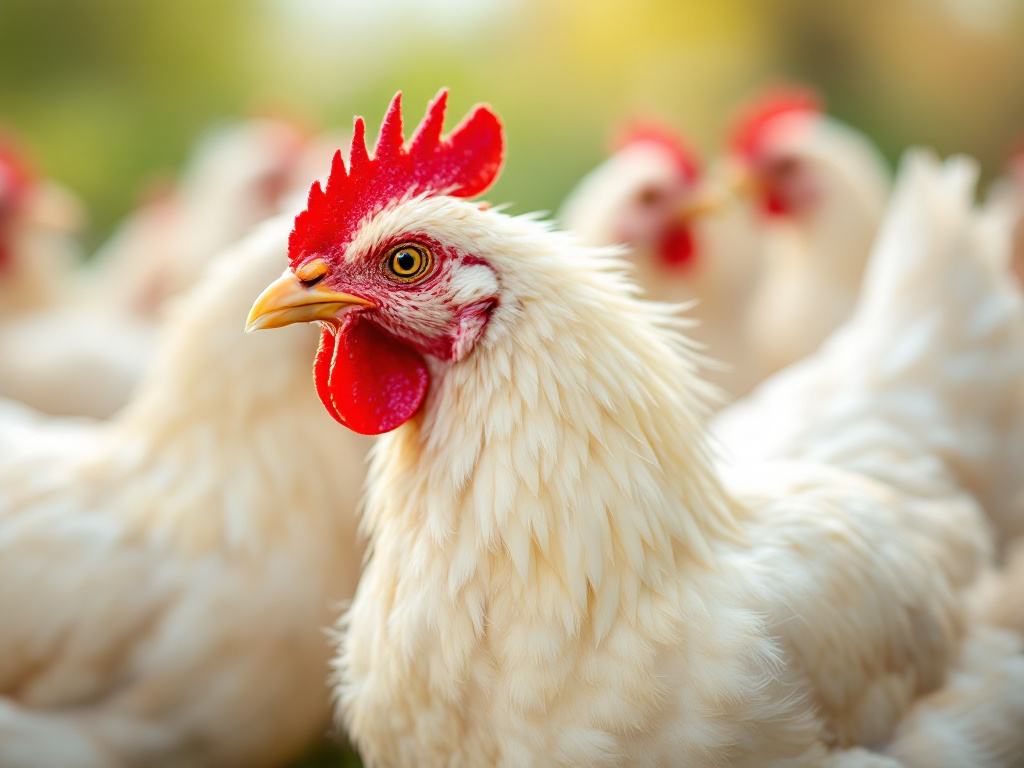Image generated by flux-ai.io & content generated by ChatGPT Version 4o-mini
Understanding Chicken Health: The Role of Their Immune System
In Madison County, where agriculture plays a vital role in our economy and way of life, understanding how to keep poultry healthy is essential for both farmers and the community. Recent research by scientists Gary D. Butcher and Richard D. Miles sheds light on the avian immune system, which is crucial for preventing diseases in chickens and ensuring they thrive. This knowledge not only benefits local farmers but can also impact the quality of poultry products available to consumers in our area.
What Is the Avian Immune System?
The avian immune system has two key components: the non-specific (or innate) immune system and the specific (or acquired) immune system. Think of the non-specific immune system as the first line of defense, much like a sturdy fence around your property. It includes genetic factors, body temperature, and physical barriers that help keep harmful germs out.
For instance, some chicken breeds have genetic traits that make them resistant to certain diseases, such as the lymphoid leukosis virus. Additionally, chickens have higher body temperatures than many other animals, which helps them fend off infections. In simple terms, the body’s natural defenses help keep chickens healthy without needing constant medical interventions.
Why Non-Specific Immunity Matters
Often, farmers focus heavily on vaccinations and antibiotics to protect their flocks. However, this research emphasizes the importance of non-specific immunity. Good management practices, such as maintaining clean living environments and providing balanced nutrition, can enhance these natural defenses. For example, just like how a well-maintained garden is less likely to attract pests, a clean poultry house can prevent diseases from taking hold.
In Madison, where many residents are involved in agriculture, paying attention to these factors can lead to healthier chickens. This not only improves the well-being of the birds but can also enhance the quality of the eggs and meat that local farms produce.
The Role of Specific Immunity
The specific immune system is like a specialized security team that remembers past intruders. When a chicken is exposed to a disease, its body produces antibodies—special proteins that recognize and fight off that specific disease. This process takes time, which is why vaccinations are vital. They help prepare the chickens’ immune systems to respond quickly if they encounter the disease in real life.
The research notes that there are different types of antibodies which work in various ways. For example, some antibodies provide local protection in the chicken’s respiratory system, while others circulate throughout the body. Understanding this can help farmers know when to vaccinate their flocks for maximum effectiveness.
What This Means for Madison County
For residents of Madison County, the implications of this research are significant. By applying this knowledge, local farmers can improve flock health and productivity. Healthier chickens lead to better-quality eggs and meat, which benefits everyone in the community—from farmers to families buying groceries.
Furthermore, with Madison County’s focus on agriculture and natural resources, investing in better poultry health practices can enhance the local economy. As farmers produce healthier livestock, they may see increased profits, which can, in turn, benefit the entire community through job creation and economic growth.
In conclusion, understanding the avian immune system helps us appreciate the complexities of poultry health. By recognizing the importance of both non-specific and specific immunity, farmers in Madison County can take proactive steps to ensure their flocks remain healthy, ultimately benefiting everyone in our community.
References
VM74/VM016: The Avian Immune System. (n.d.). Ask IFAS – Powered by EDIS. https://edis.ifas.ufl.edu/publication/VM016

